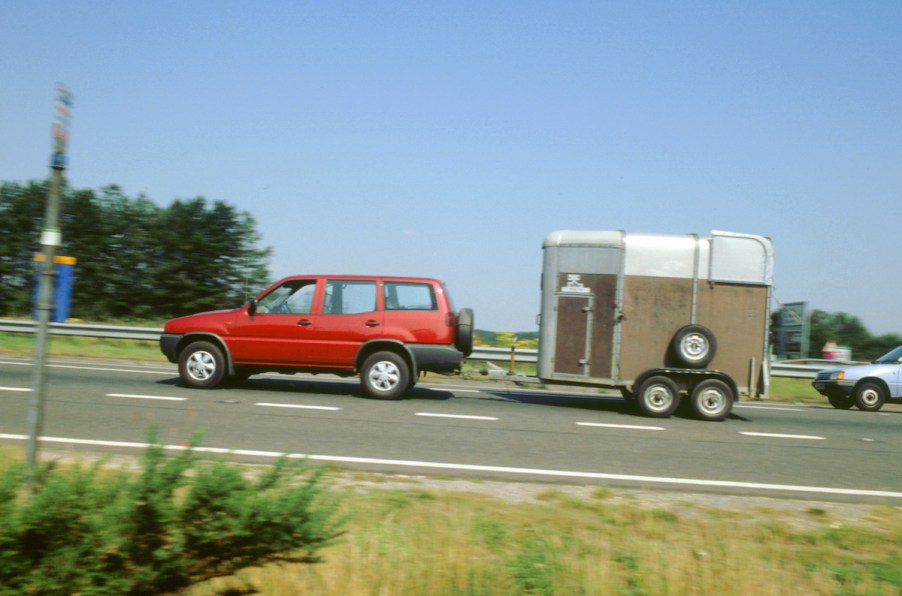
Is It Safe to Tow a Trailer on the Interstate?
The interstate is one of the most heavily trafficked roads in the country. Knowing the dangers of towing a trailer on such a busy area is essential. While it is possible to tow a trailer on the interstate, you should keep a few things in mind before heading out.
Is towing a trailer on the interstate safe?

Safety should always be the first priority when behind the wheel. It is especially true when driving with high speeds and dense traffic on the interstates. In addition, it becomes even more demanding when you factor in towing a trailer behind you.
While most RVers prefer driving on the interstates due to the absence of low clearances, tight turns, or narrow roads, they can be just as dangerous as one-lane roads if safety measures are not observed. Driving & Vibing reports that following standards like remaining within the right lane, being alert, and maintaining safe speeds could be the key to keeping you and other drivers safe. Just because you are on the interstate does not mean you must drive at 70 mph, chasing the clock to arrive at your destination.
So, while it is technically safe to tow a trailer on the interstate, there are some dangers you should be aware of before doing so. If you are going to tow a trailer on the interstate, be sure to practice safe driving habits and always be mindful of your surroundings.
1. Inspect your trailer before setting out on your trip
Before you hit the road with your trailer, inspect it thoroughly. The inspection should include checking the lights, brakes, tires, and hitch to ensure everything is in working order. This measure will help you avoid potential problems while on the road and give you peace of mind knowing that your trailer is safe and ready to go.
2. Avoid driving in bad weather
As we all know, driving in bad weather conditions can be extremely dangerous, even without a trailer hauling behind your car. Therefore, when towing a trailer, it is best to avoid driving in severe weather conditions such as high winds, heavy rain, or snow. The trailer can act as a sail and may cause your car to lose control or tip over. Poor visibility due to heavy rains and slippery roads can also make it difficult to see and stop in time.
3. Leave enough distance between you and the car in front
With extra weight of the trailer, it will take longer for your car to come to a complete halt. This aspect may not give you enough reaction time to brake in time if the vehicle in front of you suddenly stops. Therefore, if you are not leaving enough distance between you and the next driver and you are driving at high speeds because the speed limit says you can, you might end up in a severe accident if the driver ahead decides to break abruptly.
4 Remain alert at all times and take breaks when needed
When driving for long periods, it is crucial to stay focused and alert. It is especially true when hauling a trailer because you must pay attention to both and anticipate other drivers’ moves. If you start to feel tired, take a break so you can rest and recharge. You should also avoid driving at night if possible because it can be more challenging to stay awake and alert during dark hours.
These tips will help you make your way on the interstate safely.


